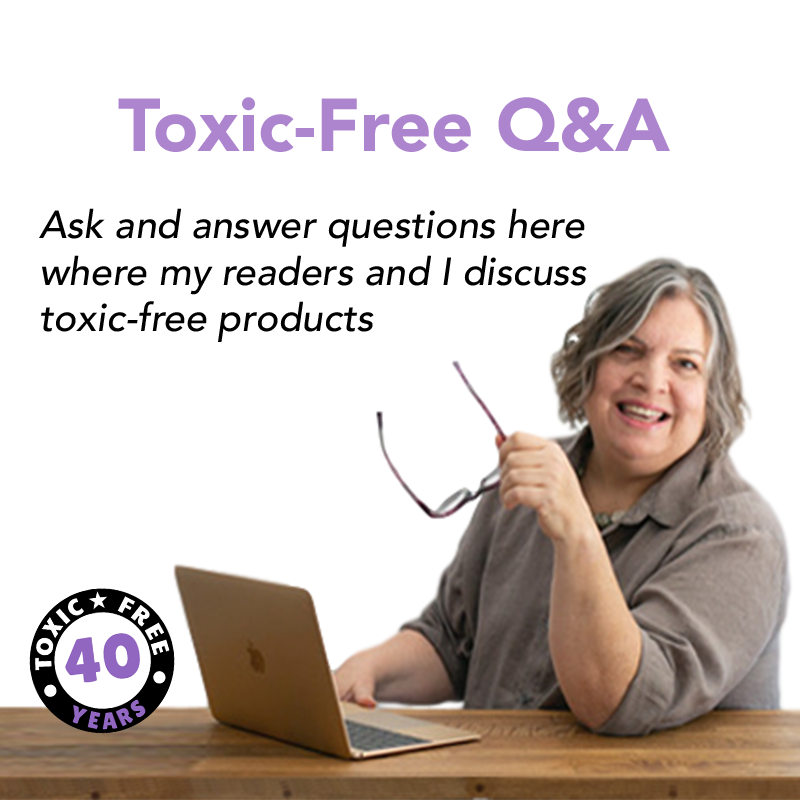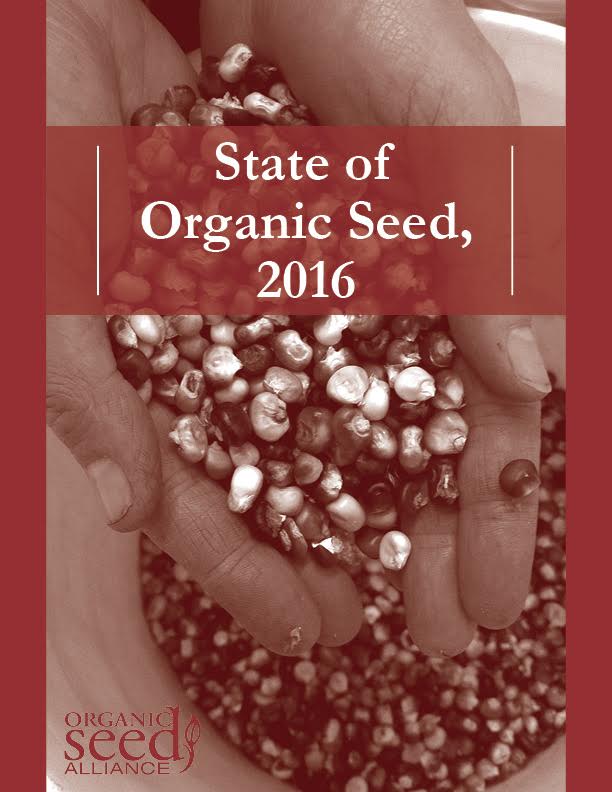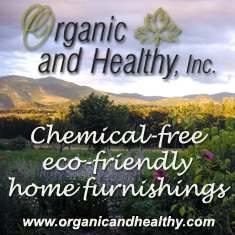
Submitted questions will be posted with my response by the following Tuesday or before.
Submitted comments will be moderated and approved within 24 hours.
Finding Nontoxic Shoes
Question from Tammy
Hi Debra,
Hi for about a year now my feet have been very painful cannot get comfortable in any shoe my feet become real hot and I just want to rip my shoes off within 10 minutes of putting them on. Recently found out I was allergic to fossil fuel’s which include Rubber all the memory foam shoes I can’t find any shoes that are good for me I am looking for leather shoes with no padding and no rubber soles I’m allergic to the glue’s etc. I really need help has anybody found any shoes That might work?
Debra’s Answer
First, there are already some resources on this website for shoes:
How to Choose Toxic Free Shoes
But today I want to give you even more information.
I spent quite a bit of time online over the weekend looking at shoes. And I found some I want to investigate further.
But here’s what I learned. There are A LOT of shoes available made from natural materials. The key is to search on the type of material you are interested in and then look at IMAGES. From this gallery you will find many brands and then you can find out more about them.
Also if you find some you like, click on the image and google will give you a box with “more like this” choices. Look at those too.
For example here are some search results…
“vegetable tanned leather sandal”

“cotton shoes” and “cotton espadrilles”


Have fun looking and post a comment to let us know what you find.
Promotion v. Precision
Last week this issue came up twice in one day, and it came up again this morning, so I decided to write a post about it.
The issue is promotion of a product versus the precision of product description. Promotion being text and images created specifically to make you want to buy the product and precision the act of being exact and accurate.
First, a long-time reader wrote to me and asked what I thought of a product that had been promoted that day via email.
I took a look at the promotion page, and there simply wasn’t enough detail for me to evaluate the product. But it was a great promotion—great enough to make her want to buy it. In this cassette technical details about the product were missing altogether.
Second, I made a mistake in recommending a business on Debra’s List, I was so charmed by the promotion and the content in the headlines that I didn’t look deep enough on the site to find details that were there.
The website I deleted is Bears for Humanity.
On their home page it says, “Our products are made of 100% GOTS Certified Organic Cotton and Hemp.” And they display the GOTS logo.
On their About page they say “From farm to fulfillment, our plush toys are made using only 100% GOTS Certified Organic materials and Global Fair Trade practices, while employing at-risk women from Welfare-to-Work programs right here in the United States.
Now doesn’t that sound like 100% of the bear is GOTS Certified Organic Cotton and GOTS Certified Organic Hemp?
Not so.
Reading further on the site it says, “Our bears’ shells are made from a one-of-a-kind certified organic, sustainably-sourced fabric developed in partnership with EnviroTextiles.” It’s “faux fur.” But it doesn’t say if this is organic cotton or organic hemp or organic something else. I called EnviroTextiles and they told me it was 41% (not organic or certified) hemp, 34% certified organic cotton, 24% synthetic PET (in the backing, not the fur). Don’t know if the PET is recycled. She didn’t say.
And the filling is made from recycled soda bottles.
Not 100% organic, not even 100% natural, and the product itself is not GOTS certified.
I’m not even sure the fabric is GOTS certified because there are no certificates. Only claims.
But they did a great job at making it LOOK like a GOTS-certified organic product.
And then this morning there was another one.
A reader commented in Toxic Free Q&A asking about the materials used to make Telic sandals. As I said in my response to her comment, I called Telic and asked them what their material was made from. The website says only a patented trade name, and that it’s an “elasto-polymer.” The customer service rep said it was “toxic-free” but couldn’t tell me what type of plastic it was. He said he knows it’s toxic free because it was tested. When I asked for a certificate he said it was on the website, but he couldn’t find it.
Again, this is no information. Yet, the rep claimed the material is “toxic free.” Great promotion though about Made in America and molded to support your foot.
There are federal laws about advertising. You need to 1) tell the truth and 2) substantiate your claims.
To fulfill both of these, manufacturers need to reveal their materials and show their certificates or give other substantiations about claims. Take a look at Debra Lynn Dadd Recommended Products for examples of manufacturers who are doing this.
We consumers need to double-check headlines, read the information that is given, and ask for information if it is missing.
And not be swayed by promotion.
I so wanted there to be an organic teddy bear!
Is Coffee Bad to Drink?
Question from Terri
Hi Debra,
Hello, my name is Terri. I’m in quite the conundrum, should I stop drinking coffee or not. Does coffee have toxins such as metals. Does Tea have metal toxins Does organic tea have metal toxins. Or even other toxins I should worry about. Any help I would love. Thank you.
Debra’s Answer
In my opinion, it’s OK to drink organic coffee. I drink it occasionally, not every morning.
Recently the World Health Organization (WHO) reversed their position on coffee.
The International Agency for Research on Cancer (IARC) had previously rated coffee as “possibly carcinogenic” but has changed its mind.
It’s latest review, however, found “no conclusive evidence for a carcinogenic effect” of coffee drinking and pointed to some studies showing coffee may actually reduce the risk of developing certain types of cancer
At the same time, IARC presented other scientific evidence which suggests that drinking anything very hot—around 149 degrees Fahrenheit or above—including water, coffee, tea and other beverages—probably does cause cancer of the oesophagus.
If you are going to drink coffee, organic is best, to avoid the toxic pesticides, and decaffeinated is even better.
Read this pros-and-cons article on the health effects of coffee.
Here’s the info on toxics in tea: Q&A: Tea Steeped in Toxics
And I would always make organic coffee or tea with filtered water.
Man-made pollutants found in Earth’s deepest ocean trenches
New research—which has not yet been published—has found high levels of man-made chemicals in Mariana Trench, the world’s deepest trench.
This is the first time there have been tests done at the depth of 7,000-10,000 feet.
Banned PCBs and the fire retardant PBDE were found in high concentrations in small shrimp-like creatures that live in the Trench.
NATURE: Man-made pollutants found in Earth’s Deepest Ocean Trenches
Not All Organic Food is Grown From Organic Seed
Organic standards require organic food to be grown from organic seed, but a new report from Organic Seed Alliance (OCA) found that the supply of organic seeds isn’t keeping pace with the rising demand for organic products. In 2015, sales of organic products totaled $43 billion.
Organic farmers say that organic seed does need to be used because all seed is not the same.
Most commercial seed is bred to rely on the high fertilizer inputs of industrial agriculture. Organic farmers need seed bred to thrive on the slow release of nutrients from organic soil amendments.
THE US Department of Agriculture (USDA) allows some leeway for certified organic foods and fibers due to lack of supply.
 Though the supply of organic seed is increasing, today only 27 percent of organic farmers use 100 percent organic seed.
Though the supply of organic seed is increasing, today only 27 percent of organic farmers use 100 percent organic seed.
If you are growing an organic garden, use organic seed for best results.
Silica, Silicon and Silicone
Update June, 2020: Read more about silicone in The Toxicity of Silicone read more…
BPA Linked to Hyperactivity in Children
A study of 460 children across the United States, aged 8 to 15 years old, found that 11 percent of those with BPA levels higher than the median level had ADHD. In contrast, 3 percent of those children with BPA levels below the median had ADHD.
The research, published online last week in the Environment Research journal, adds to evidence that children’s BPA exposure may alter brain development and lead to behavior problems such as reduced attention and hyperactivity. ADHD is the most common behavior disorder in U.S. children, causing them to have trouble concentrating and controlling their behavior.
ENVIRONMENTAL HEALTH NEWS:
Hyperactivity in children linked to plastic additive, BPA
UV Irradiation of Water
Question from Andrea
Hi Debra,
Recently we were informed that our municipality will soon be brought into compliance with a federal mandate requiring the treatment of our water supply with UV irradiation to help eliminate harmful bacteria and other pathogens from the water.
Having in mind Dr. Masaru Emoto’s work on water molecules, do you or any of your readers know if treating water in this way might “denature,” or in any other way alter the chemical or molecular structure, or the natural health-giving properties, of the water?
If so, might there be a potential negative effect on health if UV irradiated water is used for drinking, cooking or bathing over the long term?
And are there any ways to mitigate or offset any potentially harmful effects of using UV irradiated water, as I don’t believe it will be possible to opt out of receiving it.
Thanks very much for your kind reply.
Debra’s Answer
I’m familiar with UV irradiation of water and also Dr. Emoto’s work, so I feel qualified to answer your question.
First, as you know from Dr Emoto’s work, the structure of water can be easily changed for better or worse by pollutants, energy, and even mental thoughts.
I doubt that UV irradiation would have a negative effect on water. All day long I drink water from a Pure Effect water filter with a UV lamp, which is present not only to kill living micro-organisms, but to disintegrate toxic chemical pollutants. The creator of this filter knows more about water and water quality than any person I’ve ever known.
I also grew up with UV treated water. My father was very interested in this technology for water purification of all kinds, particularly for swimming pools and drinking water. He invested a system many years ago that was sold to a company to be used for drinking water purification in Third World countries.
So I have no concern about water treatment plants using UV treatment, which would reduce the amount of toxic chemical disinfectants that need to be used.
Now, does this affect the natural health-giving properties of the water? Yes, it would. But your tap water is already terribly not in it’s natural state due to all the chemicals added to it. UV irradiation would not add more damage to already damaged water, but in fact might contribute to damaging the water less by reducing the amount of chemicals used.
Ultraviolet light is a wavelength of the sun and is found in nature. For water disinfection purposes, it’s the same wavelength, but more concentrated to have a quicker effect. Since it’s light energy, it’s not adding anything toxic to the water.
I want to make clear that UV ‘irradiation” is not adding radiation to the water. UV irradiation is simply shining ultraviolet light from a lamp on the water. It’s like sunbeams shining on the water.
I don’t see any potential negative health effect from shining a UV lamp on water.
Now if you want to restore water’s natural life giving properties there are several things you can do.
1. Get a PureEffect Water Filter. Igor has designed these filters especially to transform tap water as close as possible to natural state. I’ve been drinking this water every day for about four years and my body loves it.
2. Get a Flaska water bottle . This bottle restructures the energy matrix of the water to be closer to natural state. The Glass Water Bottle That Restructures Tap Water to Be Like Spring Water
3. Visit the Dancing With Water. There you will find a lot of information on the nature of water and advanced ways you can restore water to it’s natural state. Going Beyond Filtered Water
The best water I ever drank was from a spring at the foot of Mt. Shasta, in California. That water was immensely alive and nourishing to my body.
Start out by getting a PureEffect filter because you need to remove pollutants before you can restructure the water. Then get a Flaska bottle. And then start learning more about how very much you can influence the health-giving properties of water.
Bitumen in Dishwasher
Question from Marjorie
Hi Debra,
Have there been any safer dishwashers on the market? We’ve gone w/out one for over 2 years now, but really miss it.
Also, if the choice comes down to PVC (Part of interior not the whole thing) or the newer bitumen ones which is safer? Thanks.
Debra’s Answer
I haven’t researched dishwashers lately because I don’t use one. I wash all my dishes by hand.
So bitumen vs PVC…
Geez. It’s asphalt (used to surface roads and to seal flat roofs) vs carcinogenic plastic.
I read that many brands now use bitumen coating for insulation.The writer says this is basically Dynamat type asphalt matting and many brands give off a tar smell when hot. For the first 10 washes there has been a detectable tar smell, and I would add, toxic tar fumes.
We’ve discussed this before in Q&A: Chemical Smell in New Boesch Dishwasher. That smell appears to be bitumen.
Update: Read more about bitumen and finding a non-toxic dishwasher.
Germ-Killing Hand Sanitizer 2016
Question from MM
Hi Debra,
I went to the eye doctor Monday and by yesterday had the stomach flu. I think I’m ok but after reading the CDC website feel I need to sanitize everything, starting with my eyeglasses and then everything I’ve touched since Monday, since I touched the glasses often.
I guess Dr. Hulda Clark would suggest vodka and I have some. I have some alcohol though I’d rather not use it.
I don’t want to reinfect myself or endanger someone else, although I imagine people who are out in the world encounter it often and don’t get sick. My doctor said three schools in his area were closed due to it.
What would you do?
Debra’s Answer
I’ve answered similar questions before, but I’ll give an update for 2016.
Here are the other posts on this subject. Please read them all as they have relevant points.
Q&A: Earth Friendly Hand Sanitizer
how to make your own, important of hand washing
Q&A: Hand Sanitizer
recommends Clean Well Hand Sanitizer
Q&A Handwashing vs Hand Sanitizers
instructions for proper hand washing
Just keep in mind, before they go into surgery, doctors SCRUB , they don’t use a hand sanitizer. And instruments are AUTOCLAVED.
My suggestion is that you scrub your hands and boil anything that you’ve touched that can be boiled.
You mentioned vodka. I would use that if you need to, rather than isopropyl alcohol, which is a petroleum product.
Hydrogen peroxide can also be used as a disinfectant.
If you want a hand sanitizer product…a few weeks ago I was asked by a doctor for hand wipes he could use between patients in the office. I recommended Clean Well but we couldn’t find it locally.
But my natural food store carried another brand—EO —which was easy to find at my local natural food store. These are scented with lavender essential oils.
Note these are hand sanitizer wipes and not baby bottom wipes. I don’t know if baby bottom wipes contain the same sanitizing ingredients. Some brands offer baby bottom wipes and separate hand and face wipes.
That’s all I have on this subject for the moment, but readers please comment and let me know what you are using for sanitizer.







